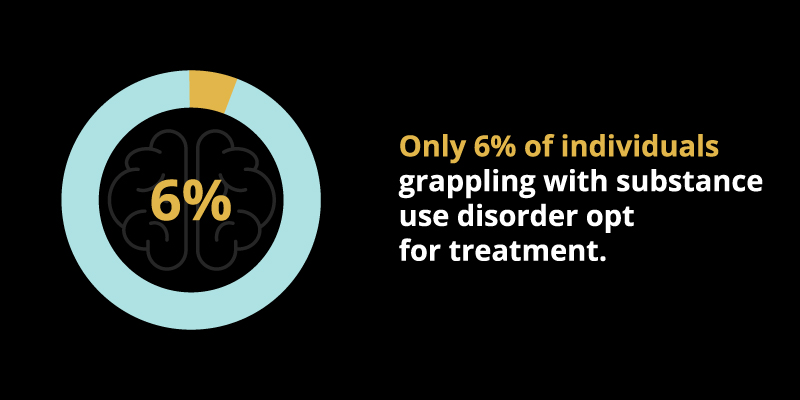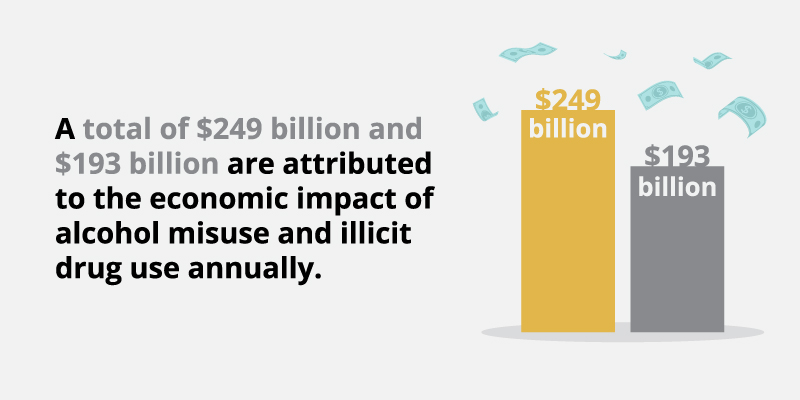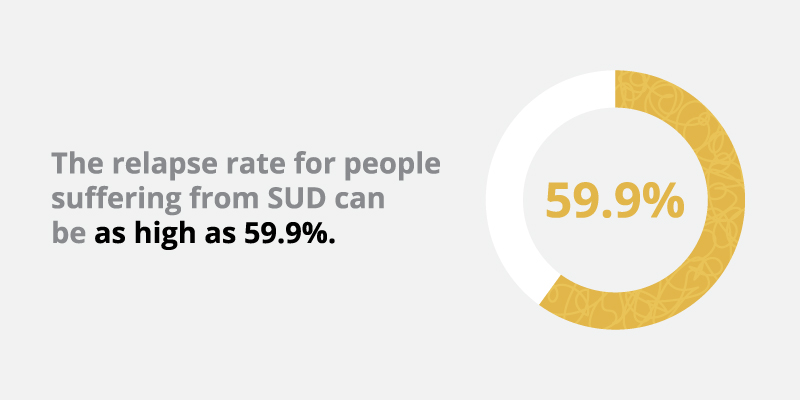Understanding Intensive Outpatient Programs:
What Makes Them Different?
Discover the conditions treated in an intensive outpatient program and find out if an IOP can provide the support you need for comprehensive recovery.
From psychiatric care to holistic wellness, our Houston-based team brings together diverse expertise to provide accurate, compassionate, and personalized mental health, chronic pain, and addiction treatment.
Experience Transformative Intensive Outpatient Programs at Black Horse Health
At Black Horse Health, we offer intensive outpatient programs to help individuals heal from a variety of conditions, including mental health challenges, substance and process addiction, chronic pain, trauma, and dual diagnosis.
If you or your loved one are experiencing any of the aforementioned conditions, know that our team of experts are here to support you on your path to sustainable healing and recovery.
Our multidisciplinary staff have over 100 years of combined experience and will utilize a combination of evidence-based and holistic treatment approaches to find the personalized treatment that works for you.
Next Steps Toward Recovery
For more information on intensive outpatient programs, how they differ from other treatment modalities, and what to expect, continue reading.
For the guidance you need for lasting recovery, reach out to our Black Horse Health team. With intensive outpatient treatment opportunities, personalized treatment plans that involve wellness opportunities like cognitive-behavioral therapy (CBT), dialectical behavioral therapy, art therapy, and more, you can achieve whole-person healing and establish sustainable coping mechanisms.
We’re here to help you harness the power of wellness.

What Is an Intensive Outpatient Program?
An intensive outpatient program (IOP) is a treatment program for individuals dealing with substance use disorders (SUD) or mental health challenges. It allows them to receive structured support and therapy while still being able to live at home and continue with their daily responsibilities.
In 2021, around 1.5 million people sought outpatient substance use disorder treatment at mental health centers, highlighting the need for this treatment modality.1
"An Intensive Outpatient Program (IOP) for substance use disorder is well-suited for individuals who require structured treatment but can maintain some level of daily functioning. It is particularly beneficial for those with a moderate level of addiction, a stable home environment, and a supportive social network. Individuals who have completed inpatient treatment and need continued support during their transition back to daily life often find IOPs effective. Additionally, individuals with work or family commitments that preclude full-time residential treatment may find IOPs a flexible and viable option for their recovery."
- Black Horse Health multidisciplinary staff
What Does an Intensive Outpatient Program Typically Entail?
Higher Level of Care and Structure
An IOP gives more care and structure than regular outpatient treatment. In typical outpatient programs, individuals might only have therapy once or twice a week. But with an IOP, people generally go to therapy more often, which gives them added structure and assistance for their symptoms.
Aftercare and Transition Support
Time Commitment
"Substance use disorder is a medical condition characterized by problematic patterns of substance use leading to significant impairment or distress. Diagnosis is typically based on criteria outlined in the Diagnostic and Statistical Manual of Mental Disorders (DSM-5), including factors such as impaired control, social impairment, risky use, and pharmacological criteria. Healthcare professionals assess the severity of the disorder, ranging from mild to severe, based on the number of criteria met. A comprehensive evaluation by a qualified clinician considers the individual's history, behaviors, and the impact of substance use on various life domains to determine an accurate diagnosis."
- Black Horse Health multidisciplinary staff
Flexibility and Independence
"An Intensive Outpatient Program (IOP) differs from inpatient treatment by allowing individuals to live at home while receiving structured, intensive therapy during scheduled sessions. Unlike inpatient care, IOPs provide flexibility for individuals to maintain work, school, or family commitments. Compared to traditional outpatient therapy, IOPs offer a more concentrated and comprehensive approach, typically involving several hours of therapy multiple times per week, addressing the complex aspects of substance use disorder. While inpatient care is immersive and 24/7, and traditional outpatient therapy is less intensive, IOPs strike a balance, providing robust support without the need for full-time residential commitment."
- Black Horse Health multidisciplinary staff
Peer Support and Community Integration

What Types of Disorders Are Typically Treated in an Intensive Outpatient Program?
Substance Use Disorder
- Alcohol use disorder (AUD)
- Drug addiction
- Prescription medication misuse
Chronic Pain Management
An IOP also addresses chronic pain, a condition that can have significant mental and emotional impacts. Individuals learn to better cope with pain and improve their overall quality of life through treatment at an IOP.
- Pain education
- Mindfulness techniques
- Relaxation strategies
- Cognitive-behavioral interventions
- Aqua therapy
- Yoga and stretches
- Cold plunges
Trauma-Related Disorders
An IOP often also offers treatment for trauma-related disorders. They utilize evidence-based therapies such as:
- Eye movement desensitization and reprocessing (EMDR)
- Trauma-focused cognitive behavioral therapy (TF-CBT)
Dual Diagnosis
Mood Disorders
- Depression
- Bipolar disorder
- Anxiety disorders
What Are the Primary Goals and Objectives of an Intensive Outpatient Program?
Stabilization and Symptom Management
Relapse Prevention
Skill Development
Education and Awareness
Functionality and Daily Life Improvement
- Perform everyday tasks
- Maintain relationships
- Work or study effectively
Who Is a Suitable Candidate for Participation in an IOP?

What Is the Typical Structure and Schedule of an IOP?
Assessment
Before starting an IOP, individuals will undergo a thorough assessment process. This helps treatment providers determine the appropriate level of care needed. Treatment plans can be customized according to the individual’s needs.
- Medical history
- Substance use disorder history
- Mental health concerns
- Co-occurring disorders
- Pain symptoms (if any)
Duration and Time Commitment
Session Frequency
Continuing Care
What Role Do Individual Counseling, Group Therapy, and Family Involvement Play in the IOP Treatment Process?
Individual Counseling
- Personalized Support: Individual counseling allows individuals to receive personalized support. In this way, they are able to develop coping strategies and work through their specific issues.
- Finding the Causes: Individual counseling helps people find the root cause of their symptoms. This increased self-awareness is crucial for long-term recovery.
- Setting Goals: Personalized counseling helps set goals and keeps track of progress. As a result, individuals can feel motivated and accomplished.
Group Therapy
Group therapy is another imperative part of an intensive outpatient program. It helps by:6
- Support from Peers: Group therapy lets people meet others with the same symptoms. They can support each other and not feel alone during the recovery process.
- Learning Together: Group therapy is a chance to learn from others. People share their stories and teach each other new ways to cope.
- Building Social Skills: Group therapy helps people get better at talking and connecting with others. This is important for making friends and working collaboratively.
Family Involvement

How Does the Transition From an Intensive Outpatient Program to Regular Outpatient Care or Aftercare Support Work?
Assessment and Planning
Before transitioning out of an intensive outpatient program, there is often an assessment to see how treatment is progressing for participants. This helps determine what kind of care is still needed.
Fewer Treatment Sessions
Ongoing Counseling and Therapy
Peer Support Groups
Developing Coping Skills
Preventing Relapse
- Identifying potential high-risk situations
- Creating strategies to avoid or cope with these situations
- Establishing a support network for emergencies or moments of vulnerability

How Does Black Horse Health Provide Care Through an Intensive Outpatient Program?
Tailored Assessment and Planning
Evidence-Based and Holistic Therapies
- Cognitive-behavioral therapy (CBT)
- Dialectical behavior therapy (DBT)
- Experiential therapy
- Art therapy
- Drama therapy
- Harm reduction techniques
- Dual diagnosis treatment
- Trauma-focused therapies
- Yoga and meditation
- Chronic pain management
Individualized and Group Counseling
Holistic Approach
Family Involvement
Get in Touch Today for Comprehensive Support
We are committed to ensuring that you heal holistically and comprehensively. Black Horse Health will be with you every step of the way – contact us for further information and support.
Resources
- https://www.samhsa.gov/data/sites/default/files/reports/rpt39443/2021NSDUHFFRRev010323.pdf
- https://www.ncbi.nlm.nih.gov/pmc/articles/PMC4152944/
- https://nida.nih.gov/publications/drugs-brains-behavior-science-addiction/treatment-recovery
- https://www.verywellmind.com/what-is-an-iop-intensive-outpatient-program-5521766
- https://www.ncbi.nlm.nih.gov/books/NBK64094/
- https://www.verywellmind.com/what-is-group-therapy-2795760


